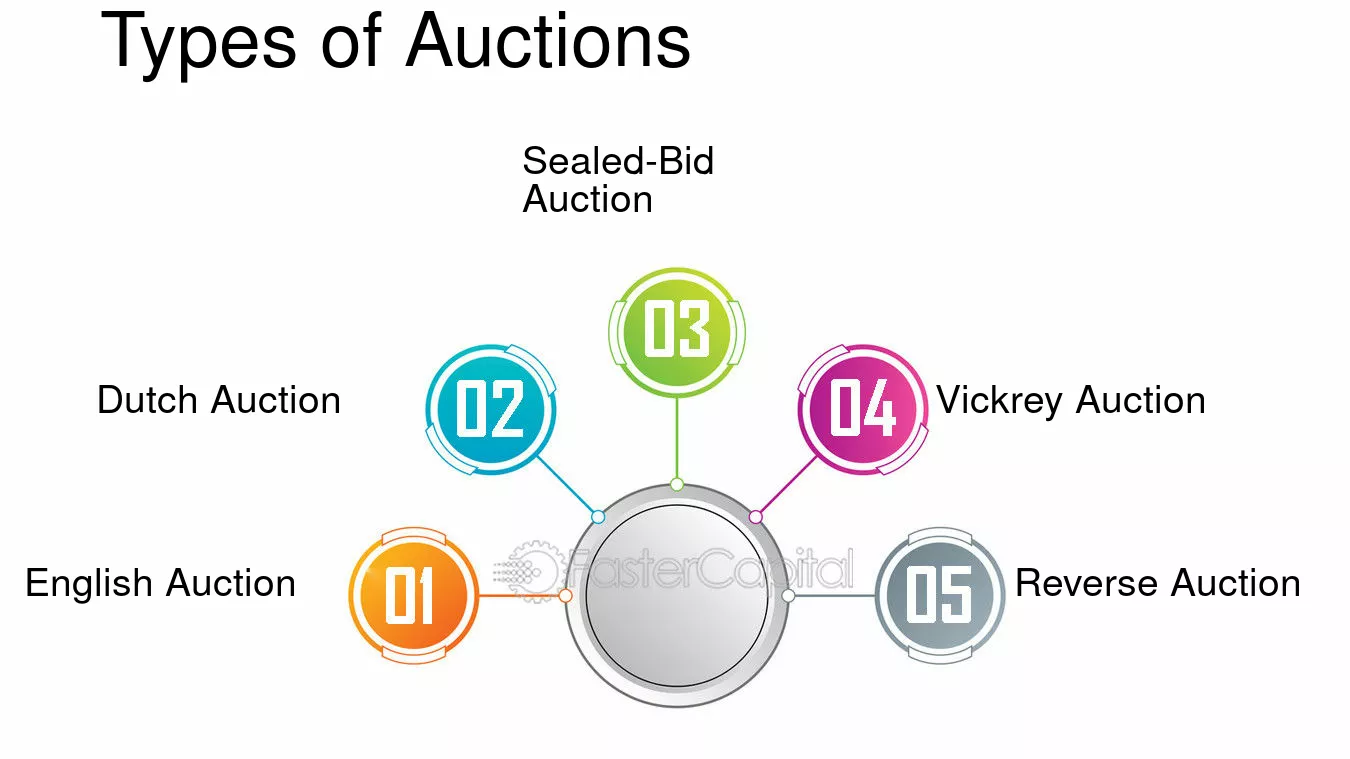Introduction
Government auctions offer a unique opportunity for individuals and businesses to purchase assets at significantly lower prices than the retail market. These auctions can include vehicles, real estate, electronics, office equipment, and even seized or surplus items from legal or government sources. Many people are drawn to government auctions because of the potential for bargains, investment opportunities, and the variety of items available. However, success in these auctions requires more than just showing up and bidding.
It involves careful research, understanding the auction process, knowing the types of auctions available, and following best practices to avoid common mistakes. This guide will provide a comprehensive overview of government auctions, including how they work, how to participate, tips for winning bids, and key challenges to watch out for. Whether you’re a first-time bidder or looking to refine your strategy, this guide will equip you with the knowledge to make informed decisions.
Understanding Government Auctions
Government auctions are organized sales where federal, state, or local agencies sell surplus, forfeited, or seized property. The goal is to recover funds, reduce storage costs, and make sure assets are used productively. These auctions cover a wide range of items:
-
Vehicles: Cars, trucks, motorcycles, and boats that are either seized or retired from government service.
-
Real Estate: Foreclosed properties, land, or unused government buildings.
-
Electronics and Office Equipment: Computers, printers, furniture, and other office essentials.
-
Miscellaneous Items: Jewelry, art, and collectibles obtained through seizures or surplus programs.
Understanding the auction’s source and purpose helps bidders assess the reliability, condition, and potential value of items for purchase.
Types of Government Auctions
There are multiple types of government auctions, each with its own rules and procedures:
-
Online Auctions – These allow bidders to participate remotely through specialized platforms. Items are displayed with photos, descriptions, and sometimes condition reports. Online bidding is convenient and often open for days or weeks.
-
In-Person Auctions – Held at physical locations, these require bidders to attend and place bids live. Registration may be required beforehand, and deposits are sometimes necessary.
-
Sealed-Bid Auctions – Bidders submit their offers privately in sealed envelopes before a deadline. The highest bid typically wins. This type ensures fairness and avoids real-time competition.
-
Live Auctions – Conducted in person or via webcast, live auctions have an auctioneer managing the bidding. Bidders raise paddles or use electronic devices to participate in real-time.
Knowing the type of auction you’re entering is critical for planning your strategy.
How to Participate in a Government Auction
Successfully participating in government auctions involves preparation and informed decision-making:
-
Research Auctions – Regularly check auction schedules. Knowing when and where auctions occur allows time for preparation.
-
Register in Advance – Most auctions require prior registration. This may involve proving your identity or submitting a deposit.
-
Inspect Items – Attend preview sessions or review item descriptions carefully. Condition, functionality, and completeness affect the item’s true value.
-
Understand Auction Rules – Familiarize yourself with bidding increments, payment requirements, removal deadlines, and other conditions.
-
Bid Strategically – Set a maximum bid based on your budget and market value. In online auctions, consider using proxy bids that automatically increase your bid up to a set limit.
-
Payment – Once you win, make payment promptly to secure the item. Late payments can result in penalties or loss of the item.
-
Pickup or Delivery – Arrange transportation or shipping for purchased items within the auction’s required timeline.
Tips for Success in Government Auctions
To improve your chances of winning and getting good value, follow these strategies:
-
Set a Clear Budget – Avoid overspending by deciding your maximum bid before the auction begins.
-
Do Your Research – Understand the fair market value and condition of the items you are interested in.
-
Be Patient – Avoid impulsive bidding and observe patterns before making offers.
-
Factor in Additional Costs – Include taxes, buyer’s premiums, and transportation costs in your budget.
-
Check Payment Methods – Ensure you have access to acceptable payment options, such as bank transfer or certified check.
Being well-prepared reduces the risk of mistakes and maximizes the potential benefits of government auctions.
Benefits of Government Auctions
Participating in government auctions offers several advantages:
-
Cost Savings – Items are often sold below market value.
-
Variety of Choices – Auctions provide access to a wide range of assets.
-
Transparency – Government auctions follow strict rules, ensuring fairness.
-
Investment Opportunities – Purchasers can resell items for profit.
-
Access to Unique Assets – Some items, such as surplus equipment or seized goods, may not be available elsewhere.
Challenges to Consider
While government auctions are attractive, they come with challenges:
-
“As-Is” Condition – Items are sold without guarantees, which may require repairs or additional investment.
-
Limited Inspection – Some items can only be assessed remotely or during short preview periods.
-
Competition – High-demand items may lead to aggressive bidding, raising prices.
-
Strict Timelines – Payment and removal deadlines can be tight, requiring careful planning.
Awareness of these challenges allows bidders to plan accordingly and avoid common pitfalls.
Strategies for First-Time Bidders
If you’re new to government auctions, consider these strategies:
-
Start Small – Begin with low-value items to understand the process without high risk.
-
Attend Preview Sessions – Physically or virtually inspecting items helps assess quality.
-
Observe Before Bidding – Watch live auctions to learn pacing, bidding patterns, and etiquette.
-
Use Maximum Bid Limits – Avoid getting caught up in auction excitement and exceeding your budget.
-
Keep Detailed Records – Document item details, bids, and payments for future reference.
Experience, research, and patience will improve your bidding skills over time.
Legal and Financial Considerations
When participating in government auctions, consider the following:
-
Taxes and Fees – Some auctions require additional taxes or buyer’s fees. Factor these into your budget.
-
Ownership Transfer – Ensure you receive all necessary documents for legal ownership.
-
Warranty and Liability – Most government auction items are sold as-is, so repairs or defects are your responsibility.
-
Local Regulations – Some items, such as firearms or vehicles, may require compliance with specific laws.
Understanding these considerations helps avoid legal and financial complications.
Read More: How to Use Fashionisk.com: A Comprehensive Guide for 2025
Conclusion
Government auctions are a valuable avenue for acquiring assets at below-market prices, ranging from vehicles and electronics to real estate and seized items. By understanding how auctions work, preparing thoroughly, and using strategic bidding techniques, participants can maximize savings and investment potential. While auctions can be competitive and items are typically sold “as-is,” careful research, setting budgets, and knowing the rules can mitigate risks and enhance success.
Both beginners and experienced bidders can benefit from attending auctions with a well-informed approach. Success in government auctions comes down to preparation, observation, and disciplined bidding. By following the strategies outlined in this guide, individuals and businesses can confidently navigate the auction process, seize opportunities for unique acquisitions, and enjoy the financial advantages that come with buying smartly from government sources.
FAQs
1. What items can I buy at government auctions?
You can buy vehicles, real estate, electronics, office equipment, and seized or surplus items.
2. How do I find government auctions near me?
Check local government announcements, public auction notices, and dedicated auction platforms for schedules and registration details.
3. Do I need to register before participating?
Yes. Most auctions require registration, sometimes with proof of identity or a deposit.
4. Are the items sold at government auctions new?
No. Items are typically used, surplus, or seized. It’s important to inspect them carefully.
5. What happens if I win an auction?
You must make payment promptly and arrange for pickup or delivery according to the auction’s rules.





